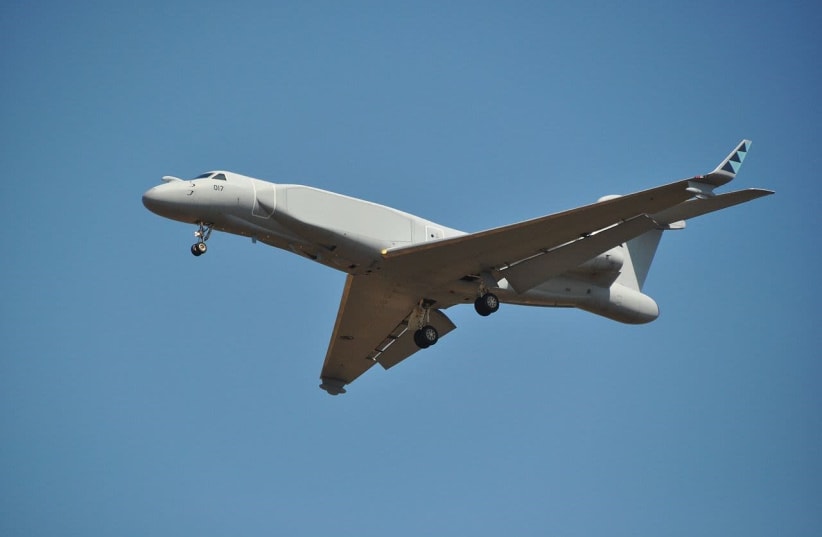Two large, important events began in the United Arab Emirates on Sunday without many of the Israeli participants who might have liked to travel.
After a whirlwind embrace last year, in which some 130,000 Israelis went to Dubai, Ben-Gurion Airport’s closure in January has left much to be desired as people skipped out on important events in the UAE.
Other countries, such as India, put major resources into being at both Gulfood and the International Defense Exhibition & Conference (IDEX). Some 2,500 exhibitors from 85 countries came to Gulfood. Belarus, Egypt and many others had fancy, pretty booths and stalls.There were food workshops and discussions about how technology is changing the food industry and how to overcome challenges during the pandemic. The UAE made sure the best health protocols were observed, according to reports. The expo took place at the Dubai World Trade Center.
Meanwhile, in Abu Dhabi, the massive defense fair called IDEX opened on Sunday as well. Like Gulfood, it will run for five days. Up to 40 Israeli companies were supposed to go for the first time this year. They were going to have booths at an Israeli pavilion.ISDEF, a part of Avnon Group, organized the important Israeli presence and invested in it.
But Israeli authorities prevented attendance from Israel by refusing exemptions for Israel’s airport closure. This left companies confused and unsure of what to do. Some were able to find locals to manage their booths at the last minute.
Israel’s head of mission to the UAE, Eitan Na’eh, attended IDEX and posted a photo next to the Israeli booth for SIBAT, the Defense Ministry’s International Defense Cooperation Directorate.
For instance, IAI said it has a booth at IDEX and that those visiting can connect virtually. Rafael Advanced Defense Systems also has an impressive booth that is being managed by a Spanish subsidiary called PAP.
Many other companies were unable to attend. Some approached the courts in Israel to see if they could go at the last minute. This is a blow to some of the smaller companies that hoped to show off products and meet new potential customers.
MILITARY AND defense, as well as homeland security companies, have generally not seen budgets decrease yet due to COVID-19, because when it comes to security and defense, long-term procurement and challenges continue.
For instance, recent drone threats to Saudi Arabia and rocket attacks on US forces in Iraq underpin the importance of air defense. Israel unveiled work on the Arrow-4 last week.
This shows that when it comes to all sorts of new defense technologies, there is a need for major defense exhibitions like IDEX. It appears that every other country in the Middle East and neighboring regions realized this, except Israel.
This is odd, considering that Israel is known as the Start-Up Nation and has some of the largest defense companies in the world, including IAI, Rafael and Elbit Systems.
Israel is a pioneer in a number of technologies, including air defense, countering drones and loitering munitions. The Jewish state is also a pioneer in electro-optics, surveillance and artificial-intelligence applications. Abu Dhabi and IDEX are a hub for important new customers in defense, including India.
With Israel’s presence reduced at IDEX, a plethora of other interesting systems are on display. The UAE’s Highland Systems is showing off its Storm amphibious hybrid multi-role vehicle, according to reports. India sent a navy ship to the exhibition. IDEX has a naval component named NAVDEX. Minks Wheel Tractor Plant also sent a delegation.
General Atomics is also at IDEX, showcasing new technology for UAVs. “Unmanned aerial systems are only as useful as the sensor they can carry,” the company says. Israel has a plethora of such sensors and drones, including the Aeronautics Orbiter line, IAI’s Heron and Elbit’s Hermes.
It would have behooved Israel’s companies to have been able to have a larger presence at the event. In the end, some 1,300 vendors went to IDEX, and it appears that most of the Israeli presence did not make it. Coming days could see a change in that, but so far, the airport closure kept the Israelis from the event.
Defense deals don’t all happen at a major event like this; they happen over years with joint ventures, partnerships and discussions.
Because procurement processes take years, sometimes decades, missing out on IDEX is just one event. However, it was symbolic and important because it was the first year Israeli companies could have been there so publicly.
